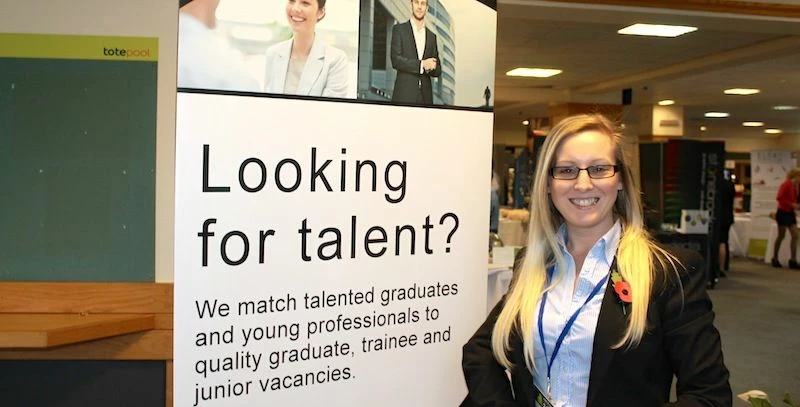
Partner Article
Marrying graduates and SMEs
Bdaily spoke to Lisa Bean, owner of Gradvert - a Newcastle-based graduate recruitment company - to find out more about the graduate recruitment space, and how SMEs are interacting with it.
“The biggest challenge for SMEs is that they often can’t afford to have a recruiter. When SMEs are bringing on a graduate at £14,000 to £16,000, the recruiter’s fee can be a massive cost. Their challenge is in promoting their vacancies to graduates at minimal or no cost,” says Lisa.
“If they use a traditional jobs board, they might get a good volume of applications, but only a few might be valid. That might be because they don’t have a degree, or aren’t legally entitled to work in the country.”
The idea behind Gradvert is to facilitate connection between graduates and employers, and open up the passive jobs market.
Lisa explains: “Sometimes, I think SMEs are put off by the calibre of candidates they receive, and that can be for two reasons.
“Often they don’t publicise their position enough and they just expect the perfect candidate to fall in their lap. Work is required on their part, and that means using twitter, posting on the local universities’ websites, and enlisting the help of the universities to recruit to their positions and possibly provide funding.
“Secondly, when some graduates do turn up for interview, they might be underprepared or lacking experience. Sometimes they don’t take it seriously if they’ve been to a number of interviews previously.”
Visibility is key for graduates, Lisa notes: “Graduates really need to make themselves findable. The first thing I do when we’ve got a vacancy is search out people on CV library and LinkedIn.”
In the North East, Gradvert have established #NEGrads, a great social media tool for employers to post their vacancies to hundreds of tuned-in graduates.
Lisa would also like to see graduates become better informed about the SME market. The pull of FTSE 250 graduate schemes is great, and she notes that small businesses have a job on their hands to promote what they can offer to candidates.
She adds: “We’ve got three members of staff. One has just left a large corporate to work for us as a smaller company. The feedback we’ve had is that they personally made more impact; learnt more; been given more responsibility.
“On the flip-side, we’ve just lost an employee to Ernst & Young. For them, the long term prospects might have been bigger.”
The rigour and structure of larger corporate careers are attractive, but Lisa suggests SMEs can offer other incentives, such as salary bands, flexi time or training.
“Sometimes SMEs recruit in isolation, and they think what they’re offering is an amazing deal because its so personal to them- they’re putting their hands in their pockets for £16-£17,000. In corporates it doesn’t affect the individual hiring manager,” Lisa adds.
Funding is available for SME hirers. Lisa points out that some university schemes offer employers 60% of a £16,000 for a new graduate.
The benefits can be huge, as Lisa explains: “It’s great to be able to get people in from ground level and give them their perfect job, it really pays off. SMEs can be flexible with the job spec, and can give candidates room to determine their own roles. It means your employees are loyal and the job is so much more personal to them.”
This was posted in Bdaily's Members' News section by Tom Keighley .
Enjoy the read? Get Bdaily delivered.
Sign up to receive our daily bulletin, sent to your inbox, for free.








 Raising the bar to boost North East growth
Raising the bar to boost North East growth
 Navigating the messy middle of business growth
Navigating the messy middle of business growth
 We must make it easier to hire young people
We must make it easier to hire young people
 Why community-based care is key to NHS' future
Why community-based care is key to NHS' future
 Culture, confidence and creativity in the North East
Culture, confidence and creativity in the North East
 Putting in the groundwork to boost skills
Putting in the groundwork to boost skills
 £100,000 milestone drives forward STEM work
£100,000 milestone drives forward STEM work
 Restoring confidence for the economic road ahead
Restoring confidence for the economic road ahead
 Ready to scale? Buy-and-build offers opportunity
Ready to scale? Buy-and-build offers opportunity
 When will our regional economy grow?
When will our regional economy grow?
 Creating a thriving North East construction sector
Creating a thriving North East construction sector
 Why investors are still backing the North East
Why investors are still backing the North East